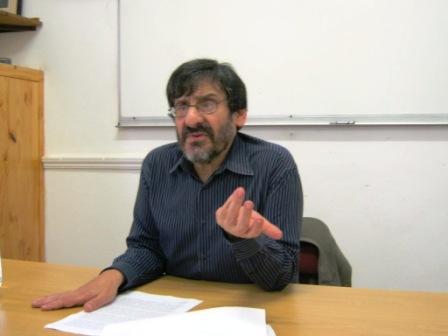
The question seems designed to spread needless alarm: a split in the ANC may well be at least five years away. But the possibility that ANC votes have become so contested that an election for president might not produce a result which everyone accepts, looks much more real now than it did a couple of weeks ago.
It is by no means sure that there will be a presidential election at Mangaung. As this column has pointed out, the hype around the “Anyone But Zuma” movement ignores the obvious point that you can’t beat a sitting president unless you have a candidate and that it is not yet sure that anyone will stand against Jacob Zuma.
Until a while ago, it also seemed highly unlikely that, if Zuma is opposed, this would split the ANC.
The only candidate who could possibly beat him is Kgalema Montlanthe, and a contest between Zuma and Motlanthe has seemed unlikely to split the governing party.
The real contest within the ANC is between the nationalist faction and its opponents – Motlanthe, like Zuma, is clearly not a member of either and so a contest between them seems unlikely to produce a result which would split the ANC, one in which either faction beat the other and began freezing it out of the key jobs.
The fact that Motlanthe is being touted as a candidate seems a clear sign that neither faction is convinced it can win at Mangaung and that both accept that the president of the ANC for the next five years will not be aligned with either.
So Zuma will either be elected unopposed or Motlanthe will challenge him, delaying the showdown between the factions for five years. It remains likely that neither result will split the ANC.
But this no longer looks certain. The event which sounded warning signals was the contested election in the ANC’s OR Tambo region in the Eastern Cape.
In one sense, what happened when OR Tambo elected its new leadership was entirely familiar. The sitting chair, who is said to oppose another term for Zuma, was opposed by someone who wants the president re-elected. There were claims from both sides that the other was not playing fair and the election produced a tight result – the chair won re-election by one vote.
If that is all that happened, it would have mirrored other ANC elections over the past five years. But it is not all that happened – the result was not allowed to stand because more people had voted than the number recognised as delegates.
The conference was adjourned and the provincial executive has taken over the running of the region. Inevitably, everyone blames their opponents for what happened and there have been angry clashes between rivals.
Whoever was to blame, one reality stands out: the question-mark over the fairness of the election was so great that no result was announced. The ANC in the region is so divided, and so far from agreeing on basic rules to ensure that everyone accepts elections as fair, that it failed to elect leaders.
If this can happen in a key region, it could happen elsewhere. It has become common in ANC elections for the losers to accuse the winners of cheating and talk that the other side relied on fake delegates has become common.
If we have reached a stage where this has become so deep-rooted that elections cannot be held in which losers accept the results, a contested election at Mangaung may spell very serious trouble for the ANC.
It is now possible to imagine Mangaung spending much of its time arguing over which delegates are entitled to be there.
And, while it is probably unlikely that this would become so impossible to settle that no election would be held at all, it is certainly more than possible to imagine the losers insisting they were robbed and walking out of the ANC. We might not need to wait for Mangaung.
If an election cannot be held in a region because there is no agreement on whether the process was fair, why should electing delegates and finalising nominations for Mangaung turn out any better?
Why is it impossible that the entire process could be bogged down in challenges and disputes, which would make impossible an election whose results everyone accepted?
The odds may still be against any of this happening. But, because it is no longer unthinkable, the health of the ANC may depend on its leaders taking this problem more seriously than they have until now.
Disputes over elections have become so much a part of life in the ANC that a solution may not be easy. But it will not even be possible unless there is a willingness among ANC leaders to deal with the issue.
As the problem becomes more serious, the uncomfortable possibility grows that it remains unsolved because no one wants to fix it. The ANC, it sometimes seems, has become so factionalised that leaders are more concerned with gaining advantage than with solving problems. They seem concerned not with ensuring that elections are regarded as fair – and that they therefore do not tear the organisation apart – but with how to extract advantage from them.
That may be how most politicians behave most of the time in most of the world. But, if trying to win control of an organisation threatens its health, the organisation may become not worth controlling. The search for short-term advantage could ensure that there is nothing worth winning in the longer term.
If the ANC is to emerge from Mangaung in good health, its leaders may have to recognise that there will be little point in winning elections unless far more is done to ensure that elections are worth winning. Which means taking the organisation’s health more seriously than they have taken it until now.

